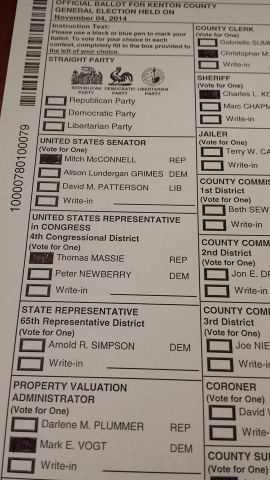What is Marsy’s Law?

By Chase Thomas
On the Kentucky ballot this year, as well as the ballots of five other states, is a constitutional amendment to provide what is being called “rights for crime victims.”
If you are in Kentucky, you may have seen several commercials promoting this amendment. It depicts what we assume to be a crime victim being followed by her former assailant until they finally meet. So what is not to get about this law? It seems very straightforward by the depiction of the commercial. It may also have seemed very clear on the ballot what the amendment is about. However, neither of these sources tell us what the amendment truly does.
The bill began in California after Marsalee “Marsy” Nicholas was murdered by her ex-boyfriend in 1983. Her family, a short time after the incident, was in a grocery store when the ex-boyfriend, who had been released on bail without the family’s notice, confronted them. This lead Henry Nicholas, Marsy’s brother, to start a campaign to amend every state constitution allowing victims to have the right to have notice of their accused’s court proceedings.
What does this tell us about the amendment currently on the ballot? It tells us that the law is meant to provide a victim the right of knowing the accused’s status in the court system and if they may be released. What is the down side? Well, some assert that the law would violate an accussed’s due process rights.
Marsy’s law operates under the assumption that a victim has a right to know of their accused’s process in the court system. This means that the whole notion of “innocent until proven guilty” may be reduced under Marsy’s law due to the fact the accused is presumed guilty of the crime towards the victim. What this means is that to have a victim be defined as a crime victim, there must be a crime. If this amendment presupposes that a crime has taken place, then guilt has been given to the accused. This is a point brought by those who opposed the law, such as the ACLU of Kentucky and Kentucky Association of Children’s Advocacy Centers, among others.
Judge Thomas Wingate of the Franklin County Circuit Court blocked the Secretary of State from certifying the results on the amendment due to the language on the ballot being too vague. Tonight’s vote on the amendment has the results at 63.53% for and 36.47% against. But it remains to be seen on whether this amendment will actually take effect, which will occur only if the trial court’s ruling is reversed on appeal.
